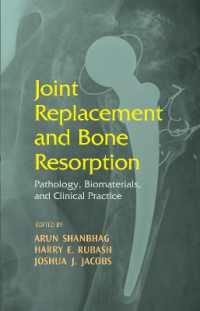- ホーム
- > 洋書
- > ドイツ書
- > Social Sciences, Jurisprudence & Economy
- > Politics, Society, Work
- > social science
Full Description
Social network analysis provides a meaningful lens for advancing a more nuanced understanding of the communication networks and practices that bring together policy advocates and practitioners in their day-to-day efforts to broker evidence into policymaking processes.








